Soundings Speakers
William Bradfield — William (Bill) Bradfield is a Flood Insurance Outreach Specialist with the Federal Emergency Management Agency (FEMA) Region III Office in Philadelphia. He promotes the importance of flood insurance in building resiliency and serves as a liaison between consumers, local/state/tribal governments, industry professionals and FEMA by providing technical assistance regarding flood insurance and its implications with floodplain regulations and mitigation. Prior to joining FEMA, Bill worked as the State NFIP (National Flood Insurance Program) Coordinator at the Pennsylvania Emergency Management Agency (PEMA), where he served the Commonwealth’s more than 2,400 NFIP communities by providing technical assistance regarding floodplain management regulations, coordinating outreach and training for local officials and professionals, and collaborating with other agencies and organizations on floodplain management issues. He started his career in environmental consulting and spent over a decade in the civil engineering field working on numerous geotechnical and water resource (dam and levee) projects. Bill holds a B.S. in Geology from Bucknell University and is a Certified Floodplain Manager (CFM). Bradfield participated in the post-film discussion of Agnes 50: Life After the Flood.

Dr. Kristina Brant — Kristina Brant is the Assistant Professor of Rural Sociology at Penn State. She is a sociologist engaged in community-based work, with a goal of informing policy and practice to support the vitality of rural U.S. communities. Her core research program concerns the family and community dimensions of substance use. She utilizes (mostly) qualitative methods, including ethnography and in-depth interviewing, to examine these issues in rural Appalachia. With Penn State Extension, she put this research into practice through community-based programming in rural Pennsylvanian communities. Outside of this focus, she has also conducted collaborative research on rural healthcare access, immigration policy, and people’s utilization of their social support networks. Dr. Brant served as a panelist for the film Flood Bound.
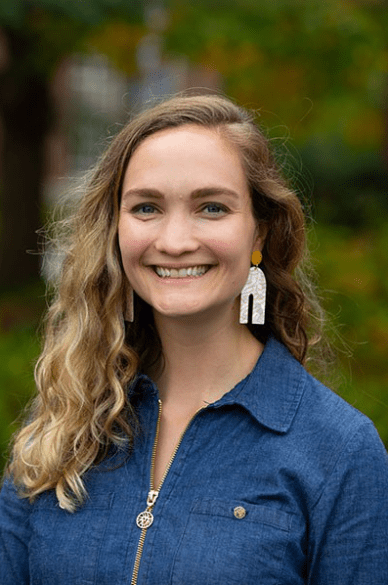
Dr. William Burgos — William (Bill) Burgos is a professor of Civil and Environmental Engineering at Penn State, whose research has focused on treating acid mine drainage and microbial communities and cycling of nutrients in water bodies. He has served in the American Chemical Society’s Geochemistry Division and is on the editorial board of Frontiers in Water and Environmental Science & Technology Letters. His research partners with watershed groups across western Pennsylvania working on watershed reclamation activities to remediate the legacy of coal mining operations in their area. Bill participated in the post-film discussion of A River Reborn.
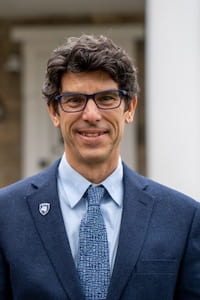
Dr. Bradley Cardinale — Bradley Cardinale is Head of Penn State’s Department of Ecosystem Science and Management where he helps coordinate the research, teaching, and extension activities of more than 50 faculty and federal agency scientists and 100 graduate students who work on the sustainable management of natural and managed ecosystems. He is an ecologist who focuses on the conservation and restoration of biodiversity in natural systems, as well as the ecological design of human engineered systems that benefit from use of native species and biodiversity. He has published over 130 peer-reviewed papers and is an elected fellow of the American Association for the Advancement of Science (AAAS) and a fellow of the Ecological Society of America (ESA). Bradley participated in the post-film discussion of H2O: The Molecule That Made Us — Pulse.
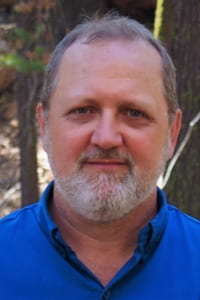
BaoBao Chen — BaoBao Chen is the producer and co-creator of Small Island Big Song, an artistic project drawing on the Pacific and Indian Island diaspora. Having negotiated, booked, planned and tour-managed several successful international concert tours across Europe, the USA, Asia and Oceania, involving up to 13 artists from 8 countries, whilst releasing a music album, creating an interactive website and bringing a feature film to screen, BaoBao now finds herself as one of Taiwan’s most prominent producers of cross-cultural arts projects. She holds a B.A. in Business Management from YuanZe University in Taiwan and is a vivid storyteller, fluent in English and Mandarin. She has been invited to present at TEDx, APAP – NYC, WOMEX, FestPac – Guam, Peace Boat – Japan, World Stage Design, Taipei Arts Festival – Taiwan, Green School – Bali, Stanford Univ, Boston Univ, and numerous film and music festivals. BaoBao introduced Small Island Big Song.

Frank Christopher — Frank Christopher is the director of WPSU’s Water Blues, Green Solutions. He has more than 40 years of award-winning experience as a writer, producer, and director both independently and for several PBS stations. He was a senior writer and producer for WPSU for seven years during which time he created Water Blues, Green Solutions, which won a Mid-Atlantic Emmy and Cine Golden Eagle Award in 2014. His other works have ranged from historical documentaries about Nat Turner to social documentaries about Vietnam War veterans and changes in American medicine. Frank participated in the post-film discussion of Water Blues, Green Solutions.

Tim Cole — Tim Cole is the director and co-creator of Small Island Big Song. Tim is an Australian creative who has been working on cross-cultural arts projects with music at the heart since producing Not Drowning Waving’s album and DVD ‘Tabaran’ in Papua New Guinea. He earned a BEd. in Media Arts from Melbourne University and an A.D. in Music Production from the University of Victoria in Australia and has received a Churchill fellowship and invitation to speak on climate change and the arts at the United Nations, APAP – NYC, WOMEX. His career has been equal parts film and music, for artists and events including Archie Roach, The Australian Indigenous Music Awards, Proof & Bran Nue Dae (film soundtracks), Not Drowning Waving, My Friend the Chocolate Cake, The Sing Sing Concerts, Shellie Morris and the Borroloola Songwomen and Circus Oz with 8 years of international touring with seasons on Broadway in New York City and the West End in London. His reputation in Indigenous arts led to him to Alice Springs as Senior Music Producer for CAAMA – Central Australian Aboriginal Media Association. It was the experiences here recording traditional songlines whilst hearing the 5th IPCC report, which led to the founding of Small Island Big Song. Tim introduced the screening of Small Island Big Song.
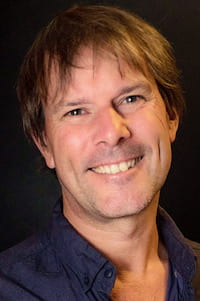
Carol Collier — Carol Collier is a Senior Advisor for Watershed Management and Policy in the Academy of Natural Sciences, Drexel University. She served for more than 15 years as executive director of the Delaware River Basin Commission (DRBC) before joining the Academy and before that was executive director of Pennsylvania’s 21st Century Environment Commission and regional director of the Pennsylvania Department of Environmental Protection (PADEP) Southeast Region. She is a Fellow of the American Institute of Certified Planners (FAICP), and a certified senior ecologist. She has been awarded the Touchstone Award from the Society of Women Environmental Professionals, the Mary H. Marsh Medal for exemplary contributions to the protection and wise use of the nation’s water resources, and the Bronze Order of the DeFleury Medal from the U.S. Army Corps of Engineers. In 2015 and 2016 she attended the UN Climate Change Conferences, COP 21 and 22, in Paris and Marrakesh, respectively, She believes proper management of water resources is the key to our economic and environmental future. Carol participated in the post-film discussion of H2O: The Molecule That Made Us — Crisis.
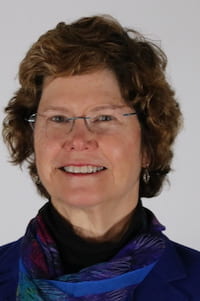
Kevin Donhoff — Kevin Donhoff is the Resource Implementation Section Manager for the Metropolitan Water District of Southern California. He has worked in water management in California for more than 30 years, addressing the drinking water needs of one of the largest metro regions in the country at a time of increasing drought and climate instability. Kevin participated in the post-film discussion of H2O: The Molecule That Made Us — Crisis.

Susan Fanok — Su Fanok is the Delaware River Director at The Nature Conservancy, Pennsylvania Chapter, where she has also served as the director of freshwater conservation. In that role, she supports The Nature Conservancy’s global mission of conserving 650 million hectares of healthy land, 30 million hectares of freshwater, and 4 billion hectares of oceans to address dual threats of biodiversity loss and climate change. Su participated in the post-film discussion of H2O: The Molecule That Made Us — Pulse.

Kate Fitzpatrick — Kate Fitzpatrick is the Executive Director of the Deschutes River Conservancy in Oregon, where she has worked for 16 years managing and directing programs to collaboratively restore streamflow in the basin. Kate brings to her work a firm belief in both rivers and the power of community to work together to find solutions to potentially divisive natural resource issues. Kate continues to be inspired by the vision that brought tribal, environmental and irrigation interests together in the 1990s to create real and lasting results in our rivers and streams. Kate participated in the post-film discussion of H2O: The Molecule That Made Us — Crisis.

Leslie Ford — Leslie Ford is currently a 5th year PhD candidate in Biobehavioral Health at Penn State. Her research focuses on understanding the social and environmental factors which affect the distribution of drinking water, and how subsequent water procurement practices affect physical and mental health outcomes. In addition to her dissertation work based on water sharing networks among Daasanach pastoralists in Northern Kenya, Leslie is part of an ongoing project looking at the human health effects of private water source consumption in Pennsylvania. Prior to attending Penn State, Leslie obtained her Masters in Water Services Management from UNESCO-IHE in the Netherlands and conducted research on water distribution systems in the Netherlands, Spain, Portugal, Tanzania, and Colombia. Leslie participated in the post-film discussion of Water Justice Short Films.

Lara Fowler, J.D. — Lara Fowler is an attorney and mediator who focuses on environmental, energy, and natural resource law, with a specific focus on water-related issues. She is Penn State University’s Chief Sustainability Officer and Director of Penn State Sustainability and also has a joint appointment with Penn State Law where she is working on questions related to water, the Chesapeake Bay, and energy. Prior to joining Penn State, she was an attorney at Gordon Thomas Honeywell, LLP, in Seattle, Washington, where she focused on mediation and dispute resolution of complex natural resource issues, as well as representing clients facing regulatory hurdles in the environmental and energy fields. She has worked on issues such as who is entitled to store groundwater in the greater Los Angeles area, flooding issues in the Chehalis Basin–Washington State’s second largest river basin, and energy issues in the Pacific Northwest. Before pursuing a legal career, she was a senior water resources coordinator with the Oregon Water Resources Department. Lara moderated the post-film discussions of A River Reborn, H2O: The Molecule That Made Us — Crisis, and Tidewater and Facing the Mountain and participated as a panelist in the post-film discussion of Agnes 50: Life After the Flood.
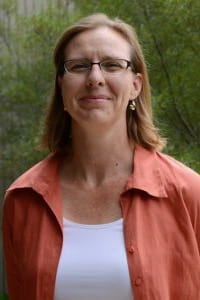
Dr. Kirk French — Kirk French is an anthropological archaeologist at Penn State whose early research focused on ancient water management technologies and land use practices in Mesoamerica. Over the past several years he has focused on the small-scale, local production, and cultural meanings of alcoholic beverages through time and space. His comparative approach to alcohol production has led him to many parts of the world to investigate, research, and film the social and economic impact of the world’s earliest and most widespread intoxicant. In 2020, Kirk released Land and Water Revisited, which took William T. Sanders’s classic ethnographic film from 1961 and returned it to the community where it was filmed, to see how the ecologies of the area near Mexico City have changed over the past 60 years. Kirk participated in the post-film conversation of H2O: The Molecule That Made Us — Civilizations.

Dr. Caitlin Grady — Caitlin Grady is an assistant professor of civil and environmental engineering. She holds a dual appointment in the Penn State College of Engineering Department of Civil and Environmental Engineering and in the College of the Liberal Arts’ Rock Ethics Institute. In 2018, Grady was named the inaugural faculty fellow for the Center for Security Research and Education. Prior to joining PSU, Grady worked in various environmental policy roles for the U.S. House of Representatives, the U.S. Department of Energy, and the U.S. Department of State, working on a myriad of issues including water & energy, agriculture, air quality, budget & appropriations, international development, and diplomatic engagement. Caitlin moderated the post-film conversation of H2O: The Molecule That Made Us — Civilizations and was a panelist in the post-film discussion of Tidewater and Facing the Mountain.
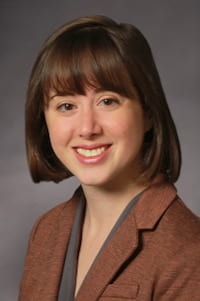
Taylor Hawes, J.D. — Taylor Hawes serves as the Colorado River Program Director for The Nature Conservancy. The Program’s goal is to conserve the freshwater biodiversity of the Colorado River Basin while also meeting community needs for water. Her responsibilities include coordinating TNC’s freshwater conservation efforts across the Colorado River Basin, implementing priority strategies, and working with key stakeholders who are critical to conservation success across the Colorado River Basin. Taylor has worked on Colorado River issues for 25 years and practiced water, local government, water quality, and land use law on Colorado’s Western Slope before joining the Conservancy. Originally from Atlanta, Georgia, Taylor received a B.A. in political science from University of North Carolina and her Juris Doctorate degree from Vermont Law School. Taylor participated in the post-film conversation of Chasing Water/Beyond the Mirage.

Dr. Benjamin Hayes — Ben Hayes serves as the Director of the Watershed Sciences and Engineering (WSE) Program at Bucknell University. He has a diverse teaching background in geomorphology and hydrogeology and research strengths in fluvial processes, aquatic habitat restoration, and erosion and sediment transport. He especially focuses on ways to connect faculty and students to teaching and research opportunities in the Susquehanna and Chesapeake Bay watersheds. Ben has also worked as a river guide and has years of experience working on large rivers, including the Kennebec and Penobscot in New England, the Nooksack and Skagit Rivers in the Pacific Northwest, and the Colorado and San Juan rivers in the Southwestern United States. Ben participated in the post-film conversation of H2O: The Molecule That Made Us — Civilizations.

Dr. Carrie Joseph — Carrie Nuva Joseph is a citizen of the Hopi Nation and Director for the Natural Resources Department of the Hopi Tribe. In her capacity, she is responsible for the oversight and management of the environmental and cultural programs of the Nation. As a land and water steward, she aspires to strengthen and protect the Nation’s environmental programs by continuing to utilize applied research and local knowledge to inform management practice and policy. Carrie received her Ph.D. in Soil, Water and Environmental Science, with an emphasis in mining remediation, human health, and policy, from the School of Environmental Sciences at the University of Arizona. Carrie participated in the post-film conversation of Chasing Water/Beyond the Mirage.
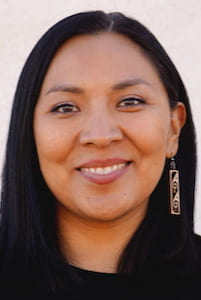
Rep. Dallas Kephart — State Rep. Dallas Kephart is in his first term of service to residents of the 73rd Legislative District. Dallas is multi-generational Pennsylvanian and a lifelong resident of Clearfield County, having grown up in Decatur Township and graduated from Philipsburg-Osceola High School. He is an alumnus of Lock Haven University, graduating with honors, magna cum laude. While working to obtain his undergraduate degree, Dallas interned for Congressman Glenn “GT” Thompson and spent his summers working in the coal industry, operating heavy equipment to strip mine coal and working at a local processing plant to help clean and process coal. Dallas earned his law degree from Penn State Law. Following law school, Dallas became a licensed attorney in Pennsylvania and worked for a judge on the Pennsylvania Commonwealth Court. Dallas’ legislative goals include striving to create an economic environment that allows for job creation and economic growth, defending our state and federal constitutions and providing top quality constituent services. Dallas participated in the post-film conversation of A River Reborn.
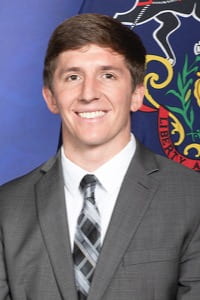
Dr. Christine Kirchhoff — Christine is an affiliate researcher and associate professor in the School of Engineering Design and Innovation. Her research focuses on a variety of topics, including: 1) Water governance, planning, and management under stress and change including transitions/transformation; 2) The human dimensions of engineering, especially around climate adaptation, and resilience, and particularly in the context of water/wastewater infrastructure and systems; 3) The production and use of science in policy- and decision-making. Christine holds a PhD in Water Resources Management and Policy from the University of Michigan and a Master of Science (MS) in Environmental and Water Resources Engineering from the University of Texas at Austin. She participated in the post-film discussion of Water Justice Short Films.
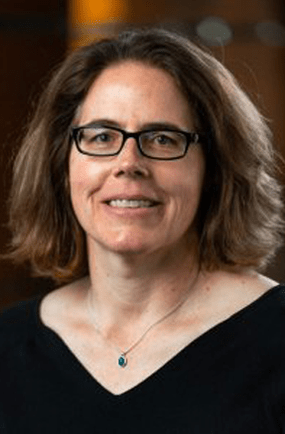
Dr. Andrew L’Roe — Andrew is a planner with the Addison County Regional Planning Commission in the beautiful Champlain Valley of Vermont. He works primarily on emergency management planning, as well as natural resources planning, brownfields cleanup planning, and all the other issues that come up in rural community. In his “free”-time he volunteers with the Middlebury Fire Department and municipal Conservation Commission. Through these roles he gets to participate in the planning for, immediate response to, and recovery from events like the 2023 flooding in Vermont, as well as the (hopefully) future mitigation of flood risks. He also helps out local farms and orchards, monitors a vernal pool, and goes on as many outdoor adventures with his family as possible. He has a PhD in Forestry from the University of Wisconsin-Madison, and a Master’s in Natural Resources from the Human Dimensions Research Unit at Cornell University. However, he will always be a Tarheel born, raised, and educated. Dr. L’Roe served as a panelist for the film Flood Bound.
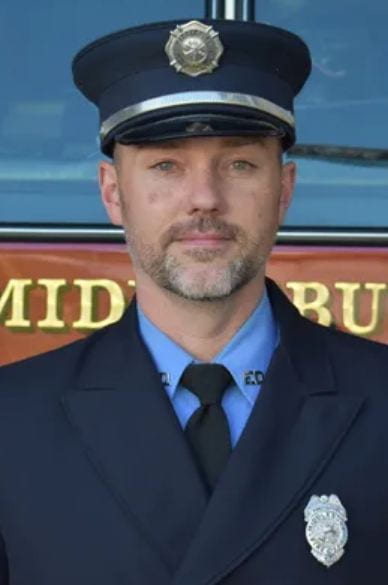
Dr. Lauren McPhillips – Lauren McPhillips is an Assistant Professor at Penn State in Civil & Environmental Engineering, with a co-appointment in Agricultural & Biological Engineering. She originally hails from the Hudson River Valley in New York State and received her bachelor’s, master’s, and doctorate from Cornell University. She works on challenges related to sustainable and resilient management of water in human-dominated landscapes. She has authored and co-authored numerous scholarly articles on water infrastructure, including the role of green stormwater infrastructure in managing extreme precipitation events. Prior to coming to Penn State, she was a research fellow at Arizona State’s Global Institute of Sustainability and part of the Urban Resilience to Extremes Sustainability Research Network. Lauren joined us for the post-film discussion following Water Blues, Green Solutions.
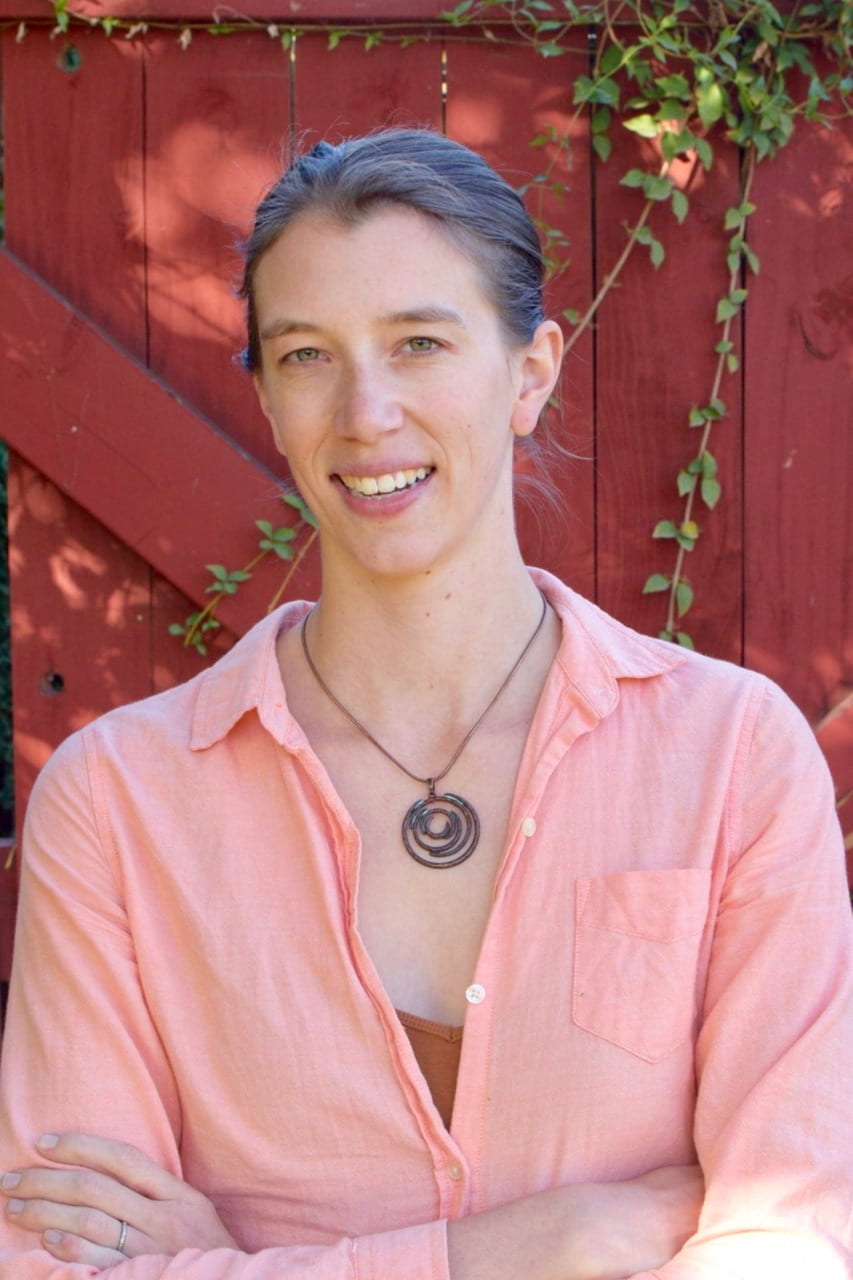
Alexander Monelli — Alexander (Al) Monelli is a producer and director at WVIA where he creates short and feature length documentaries and he is the director of Agnes 50: Life After the Flood. He earned a BFA in Film from Long Island University. Prior to WVIA, he produced two feature length award-winning documentaries, At The Drive-in and Marionette Land, both of which screened all over the country before being released on Amazon Prime and iTunes. Al resides in Clarks Summit with his wife, Amanda, and his two little pumpkin sweetheart daughters, Mila and Nora. Al participated in the post-film discussion of Agnes 50: Life After the Flood.

Dr. Robert Nicholas – Robert Nicholas is an atmospheric scientist with research interests in the areas of climate dynamics, empirical downscaling, uncertainty quantification, and Earth system modeling. His current work focuses on the development of decision-relevant climate data products, with a particular emphasis on agricultural, water resources, forestry, flood resilience, and biodiversity management applications. Much of this work takes place in the context of transdisciplinary collaborations with engineers, statisticians, philosophers, agricultural scientists, geographers, economists, and other Earth system scientists, as well as local stakeholders and decision-makers. He is the director of Penn State’s Center for Climate Risk Management and assistant director of the Earth & Environmental Systems Institute. He earned his doctorate in atmospheric science from the University of Washington. Rob participated in the post-film discussion of Flood Bound.
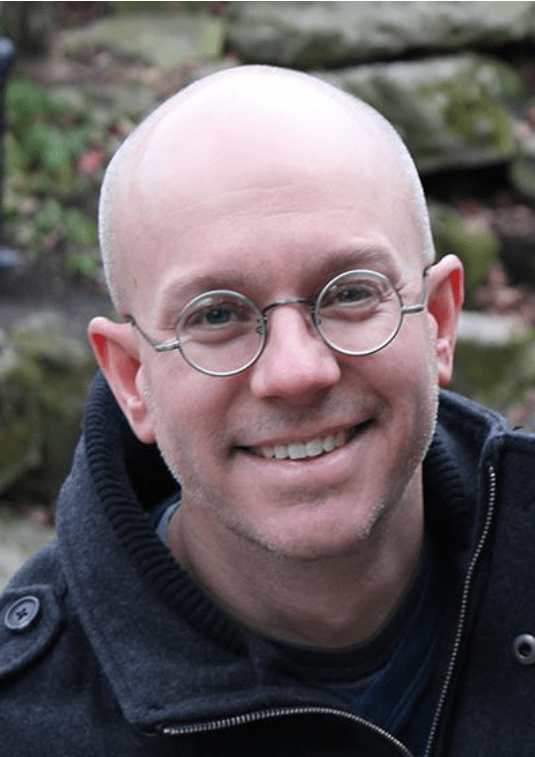
Dr. Emily Pakhtigian – Emily Pakhtigian is an assistant professor of public policy at Penn State. Her research examines the causes and consequences of human interactions with the natural environment. Her research interests include environmental health, water and sanitation, air pollution, human capital accumulation, and water resource management. Pakhtigian’s work focuses primarily on contexts in low- and middle-income countries including Bangladesh, India, Nepal, and Indonesia. Emily holds a Ph.D. in public policy, with a concentration in economics, from the Sanford School of Public Policy at Duke University. She has an M.A. in economics from Duke University and B.A.s in economics and political science from Moravian College. Emily participated in the post-film discussion of H2O: The Molecule That Made Us — Civilizations. She also moderated the post-film discussion of the Water Justice Short Films.
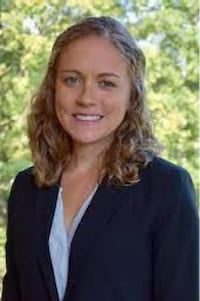

Dr. Graciela Raga – Graciela Raga is a Senior Scientist and Professor at the Atmosphere Sciences Center of the Universidad Nacional Autónoma de México (UNAM) in Mexico City. She received her Ph.D. in Atmospheric Sciences at the University of Washington. Her research focuses on cloud-aerosol interactions and on aerosol urban pollution through in-situ measurements with research aircraft. She has been a scientist and professor at UNAM since 1995, having authored 76 peer-reviewed publications. She was the Chief Editor of the journal Atmosfera, a member of the Mexico Academy of Sciences, of the National System of Research (SNI, level III) of the National Research Council of Mexico (CONACYT) and of the Third World Organization for Women in Science. She was Lead Author for Working Group I of the Fourth Assessment Report of the Intergovernmental Panel for Climate Change (IPCC), including participation in the Summary for Policy Makers and the Technical Summary of the Assessment. Graciela participated in the post-film discussion of H2O: The Molecule That Made Us — Pulse.
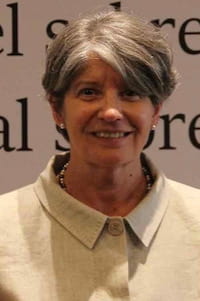
Dr. Asher Rosinger – Asher Rosinger is a human biologist and the Ann Atherton Hertzler Early Career Professor in Global Health at Penn State University. His research program is designed to understand how humans meet their water needs, how this relates to perception, environmental resources, and water insecurity, and the resulting health, hydration, and disease consequences in Bolivia, Kenya, and the U.S. Asher joined us for a post-film panel discussion of The Water Front.

Tom Schueler — Tom Schueler brings more than 30 years of experience in practical aspects of stormwater practices to protect and restore urban watersheds to his work as Executive Director of the Chesapeake Stormwater Network, a non-profit organization devoted to implementation of more sustainable stormwater practices across the Chesapeake Bay watershed. Tom directs the Chesapeake Bay Stormwater Training Partnership, which provides webcasts, workshops and on-line training modules to train engineers on new practices. Tom also serves as the stormwater technical coordinator for the EPA Chesapeake Bay Program. Tom is active in promoting better stormwater regulations and permits in communities across the Bay. Tom joined us for a post-film discussion after Water Blues, Green Solutions.
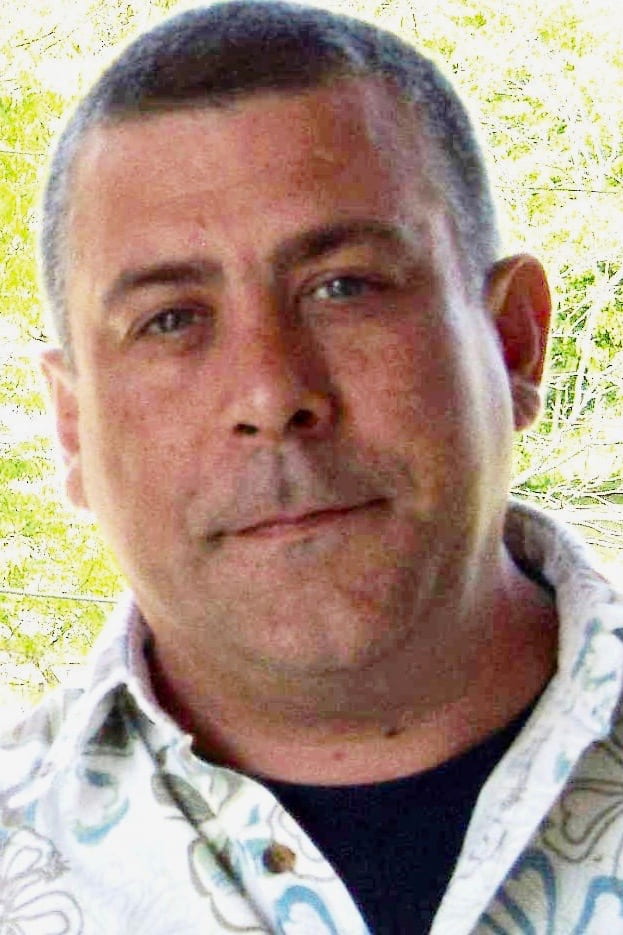
Dr. Christopher Scott – Christopher Scott is the Maurice K. Goddard Chair of Forestry and Environmental Conservation at Penn State. He is an interdisciplinary scholar working on climate resilience, human-environment interactions, water security, and the water-energy-food nexus. His applied research emphasizes the importance of science-policy dialogues with particular attention to ecosystem services, groundwater depletion, water reuse, and transboundary adaptive management. Dr. Scott has worked fifteen years for NGOs, government agencies, and applied-research institutes, contributing to water policy formulation and implementation. He has lived and worked five years in Latin America and six years in India. He was founding co-director of the AQUASEC Center of Excellence for Water Security, a virtual center and network of researchers and decision-makers, which he established in 2011. At Penn State University, his emerging program of applied research and policy engagement addresses interstate river basins, water quality and agriculture, and energy transitions in the U.S. and globally. Chris moderated the post-film panel discussing H2O: The Molecule That Made Us — Pulse and was a panelist in the post-film discussion of Tidewater and Facing the Mountain and moderated the post-film discussion of Chasing Water/Beyond the Mirage.
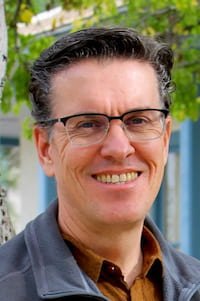
Eric Skrivseth – Eric Skrivseth is the Treasurer, Past President and Founder of the Moshannon Creek Watershed Association (MCWA). MCWA is working to protect and improve the 275 square-mile Moshannon Creek watershed in Central Pennsylvania. Moshannon Creek’s watershed is about equally divided between clean water streams, many with trout, and streams that are impaired, mostly from acid mine drainage from abandoned coal and clay mines. Eric is a Mechanical Engineer who retired in 2021 after spending 30 years in the rail industry overseeing various aspects of locomotive maintenance. Prior to his retirement, Eric pursued a private interest and obtained a master’s degree in Geographic Information Science from Unity College (now Unity Environmental University). Eric began working on watershed issues during his pursuit of his master’s degree, and his capstone project became the initial operating plan for the Moshannon Creek Watershed Association. Eric participated in the post-film discussion of A River Reborn.

Dr. Amy Snipes – Dr. Amy Snipes is an associate professor of biobehavioral health at Penn State who examines socio-behavioral factors in health. Her primary research focuses on the role of culture in understanding pesticide exposures, occupational injuries and other health disparities experienced by Latino immigrant farmworkers. Her other programs of research study the role of citizenship, race and/or ethnicity, culture, and behavior in environmental and social health issues. Dr. Snipes moderated a post-film panel discussing The Water Front.

Dr. Peter Stempel – Dr. Peter Stempel is is an associate professor in the Department of Landscape Architecture and is affiliated with the Penn State Institutes of Energy Environment, Water Faculty Initiative, and the Ecology Plus Design: E+D initiative. His research is focused on realizing the transformative potential of realistic visualization for hazard and risk communication and public engagement. His work links physical models such as hydrodynamic and wind models to qualitative data gathered from stakeholders and visualizations. He is part of interdisciplinary teams working on projects for the National Park Service and the U.S. Department of Homeland Security Center of Excellence for Coastal Resilience. This applied work is complimented by social science research designed to improve visualization practices and inform the development of new paradigms for the use of realistic visualizations. Dr. Stempel participated in the post-film panel discussing Tidewater and Facing the Mountain.

Bryan Swistock – Bryan Swistock is the water resources coordinator and senior extension associate for Penn State Extension. For the past thirty years, he has conducted research on emerging water resource issues throughout Pennsylvania, including private water supply management, pond/lake management, emerging contaminants, acid deposition, watershed hydrology, and water treatment. Bryan participated in a post-film panel discussing The Water Front.
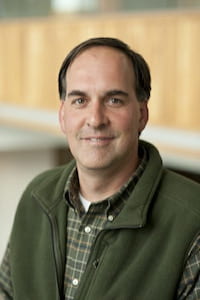
Andy Warner — Andy Warner is the Director of Penn State’s Water Initiative/Council in the Institutes of Energy and the Environment. He has worked in the water sector throughout his 30-year career, with experience in the private and public sectors, non-governmental organizations and academia. He has technical and policy expertise in water resource and water infrastructure management, watershed restoration in urban and agricultural landscapes, biodiversity conservation, environmental remediation, and ecosystem health and services. His multidisciplinary teams have developed and implemented sustainable and climate-resilient water strategies across North America, Asia, Latin America, and Africa. Andy moderated the post-film conversation at Water Blues, Green Solutions, and Flood Bound.
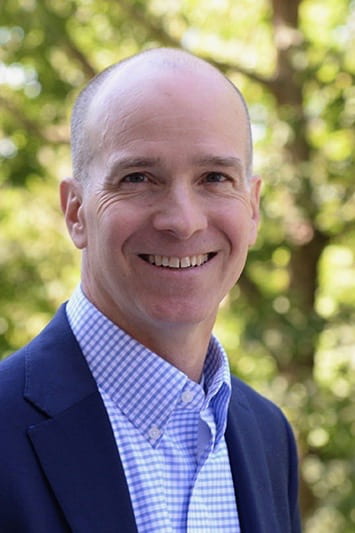
Francesca Weaks — Francesca (Fran) Weaks is a consultant and former policy and research manager for health for the NAACP in Baltimore, Maryland. She has taught public health and health science at Bowie State, Morgan State, and Towson Universities and her work focuses on eliminating health disparities in all communities. Fran participated in a post-film panel discussing The Water Front.
